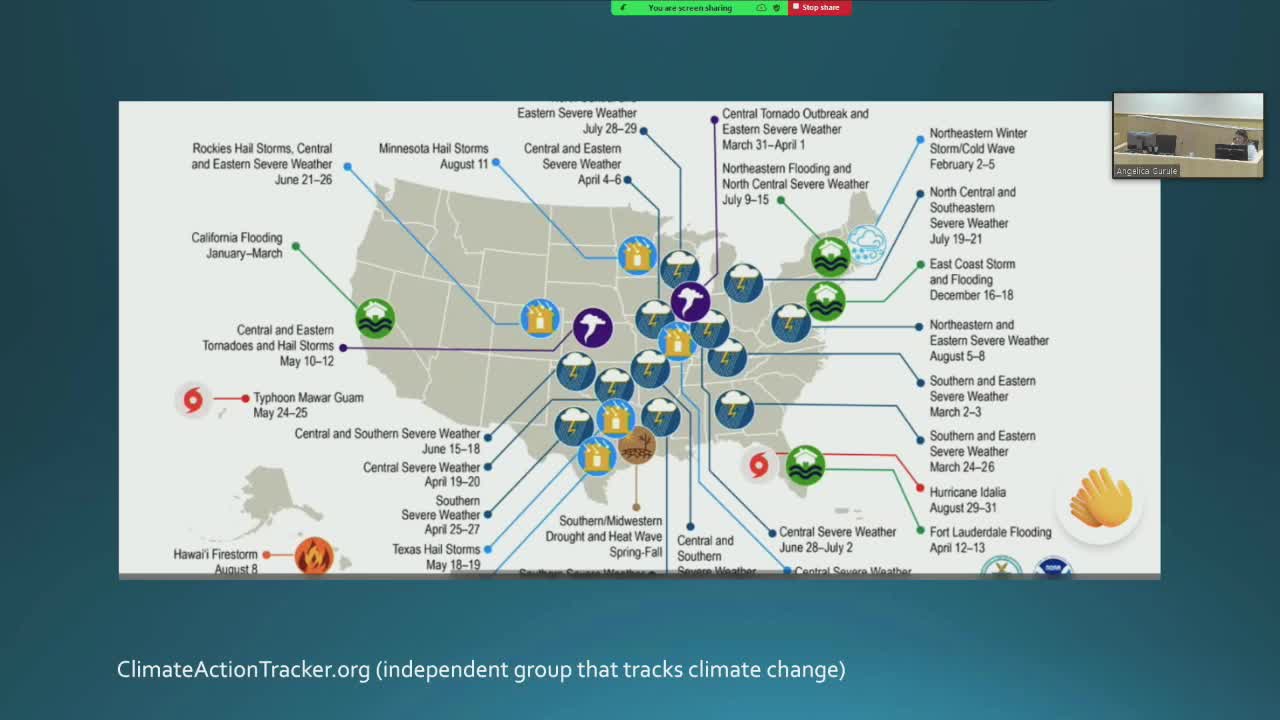Scientists explore radical solutions to combat climate change
August 15, 2024 | Los Alamos, New Mexico
This article was created by AI summarizing key points discussed. AI makes mistakes, so for full details and context, please refer to the video of the full meeting. Please report any errors so we can fix them. Report an error »

In a recent government meeting, discussions centered on innovative strategies to combat climate change, highlighting the urgent need for global collaboration and local action. The Climate Overshoot Commission presented its strategic plan, known as \"CARE,\" which emphasizes cutting emissions, adapting human and natural systems, and developing high-quality carbon dioxide removal strategies.
One of the more controversial topics was solar geoengineering, specifically the use of aerosols to reflect sunlight back into the atmosphere. Drawing parallels to the cooling effects observed after the eruption of Mount Pinatubo, experts debated the potential costs—estimated at $5 billion annually for extensive aerial operations—and the ethical implications of such interventions. Concerns were raised about the moral hazard of relying on technological fixes instead of phasing out fossil fuels, as well as the unknown side effects of manipulating natural processes.
The meeting also addressed the health impacts of climate change, noting the emergence of new diseases as warmer temperatures expand the habitats of pathogens. Experts discussed the importance of tracking these diseases and developing models to predict their spread, emphasizing the need for collaboration among microbiologists and public health officials.
Participants expressed a collective commitment to enhancing climate literacy within communities, encouraging open discussions about climate issues to empower individuals to take action. The meeting underscored the necessity of presenting both the benefits and drawbacks of proposed solutions, fostering informed decision-making among citizens.
As the conversation concluded, attendees were reminded that while large-scale solutions are critical, local efforts and education play a vital role in addressing the multifaceted challenges posed by climate change.
One of the more controversial topics was solar geoengineering, specifically the use of aerosols to reflect sunlight back into the atmosphere. Drawing parallels to the cooling effects observed after the eruption of Mount Pinatubo, experts debated the potential costs—estimated at $5 billion annually for extensive aerial operations—and the ethical implications of such interventions. Concerns were raised about the moral hazard of relying on technological fixes instead of phasing out fossil fuels, as well as the unknown side effects of manipulating natural processes.
The meeting also addressed the health impacts of climate change, noting the emergence of new diseases as warmer temperatures expand the habitats of pathogens. Experts discussed the importance of tracking these diseases and developing models to predict their spread, emphasizing the need for collaboration among microbiologists and public health officials.
Participants expressed a collective commitment to enhancing climate literacy within communities, encouraging open discussions about climate issues to empower individuals to take action. The meeting underscored the necessity of presenting both the benefits and drawbacks of proposed solutions, fostering informed decision-making among citizens.
As the conversation concluded, attendees were reminded that while large-scale solutions are critical, local efforts and education play a vital role in addressing the multifaceted challenges posed by climate change.
View full meeting
This article is based on a recent meeting—watch the full video and explore the complete transcript for deeper insights into the discussion.
View full meeting
